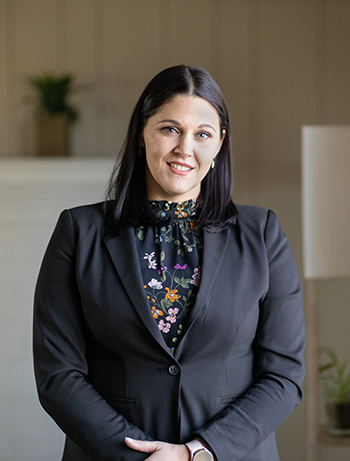
Shannon LaRosse • Norristown, PA
WellSpring Financial • USA Financial Securities Corp.
 I usually present Social Security seminars every other month in our local area. The seminars are free and highly educational for our target audience of individuals and couples approaching retirement. I have often conducted the seminars with Earl Schultz. Earl is an experienced financial advisor and educator, and he speaks frequently on retirement topics at a variety of events.
I usually present Social Security seminars every other month in our local area. The seminars are free and highly educational for our target audience of individuals and couples approaching retirement. I have often conducted the seminars with Earl Schultz. Earl is an experienced financial advisor and educator, and he speaks frequently on retirement topics at a variety of events.
In addition to the gratification we receive from educating people in our community, the seminars serve as a valuable marketing tool for our firm. They allow us to become better known within the community, both on a personal level and as a firm. While those who attend the seminars are under no obligation to do business with our firm, many end up scheduling an initial retirement-planning consultation.
In terms of the nuts and bolts of organizing the seminars, we use a third-party service to conduct the targeted mailings of invitations. We hold the seminars at public libraries or colleges in the two towns where we have office locations. We offer two different days of the week on consecutive weeks during the seminar cycle every other month. Each seminar lasts about 75 minutes, and attendance ranges from 20 to 50 people per session.
We open the seminars by answering some basic questions about Social Security: (1) Who is entitled to a Social Security benefit? (2) How do you determine your full retirement age (FRA)? (3) How do spousal and survivor benefits work?
We then explain the fundamentals of how benefits are calculated and the figures the Social Security Administration uses to determine benefits. We address the effect of turning a Social Security benefit on later than one’s FRA and examine how it could benefit both the recipient and their spouse.
We explain the importance of being aware of several circumstances that could reduce a Social Security benefit, such as the discount that a recipient would receive on benefits if claiming before FRA, the possible reduction in benefits if claiming benefits before FRA but still earning an income from work, and pension offset provisions that could reduce benefits.
We also discuss the most recent major changes made in Social Security regulations in 2015, the updates resulting from the SECURE Act passed in 2019, minor changes that were made for 2021, as well as briefly discussing a few ways benefits might change in the future—including cost of living adjustments (COLA).
The discussion then broadens to the larger context of Social Security benefits as just one element of a comprehensive retirement-income plan. How does an individual’s or a couple’s Social Security claiming strategy impact other considerations for the plan? We also touch on some basics of stock market cycles and how market volatility can severely affect retirement income, a concept known as the sequence of returns. We believe that the stock market of 1980–1999 rewarded buy-and-hold investors, but the stock market of the 2000s challenges buy-and-hold investors with greater volatility and periods of more significant potential market losses.
We explore the issue of taxation in the context of Social Security benefits. We show a side-by-side comparison of two clients with identical benefits and assets. One client pays around $4,000 per year in income tax; the other client pays nothing. The only difference between the two clients is how they pull income from their assets in conjunction with their Social Security benefits. We finish with a few pointers on how to check a Social Security statement for errors and how to avoid unnecessary reductions to benefits.
We advise the attendees to consider seeking professional financial guidance in creating their personalized retirement distribution plan. There are dozens of unique elements of planning for retirement income. Determining how they might all best fit together effectively and efficiently can be daunting for individuals not well-versed in the intricacies of retirement planning.
We distribute a self-evaluation and feedback form at the end of the session that we ask all attendees to fill out. If they would like to schedule a complimentary initial consultation with our firm, we would be pleased to meet with them and answer any questions related to their situation. I always stress that this consultation will never involve our asking them to invest in anything or to engage our firm—it is simply to discuss their retirement readiness.
Disclosure: Shannon LaRosse is an investment adviser representative of, and securities and advisory services are offered through, USA Financial Securities Corp. (Member FINRA/SIPC.) USA Financial Securities is a registered investment adviser located at 6020 E. Fulton St., Ada, MI 49301. WellSpring Financial is not affiliated with USA Financial Securities.
Post-production note: Informed Family Financial Services became WellSpring Financial in 2024.
This article first published in Proactive Advisor Magazine on Feb. 17, 2022, Volume 33, Issue 7.
Photography by Michael Branscom
New this week:

